Web Projects
Dekh Rahe: An Interactive Archival Timeline of India’s Surveillance State from Colonialism to Hindutva
Dekh Rahe is an interactive archival timeline created by Priya Prabhakar as part of her senior capstone thesis for Media Studies at the Claremont Colleges in Claremont, California. Dekh Rahe seeks to show how the fascist expansion of surveillance regimes occurs in multifaceted ways and deeply harms the lives of the most marginalized. It is created as a timeline to show that surveillance is not a one-time phenomenon, it is a growing process. Surveillance regimes, instituted by the brutal colonialist regime, are being continued by the current ethnonationalist rule — the surveillance state aids, expands, and bolsters Hindutva and upholds caste purity. In order to understand the surveillance regimes of India, it’s important that we work through an Ambedkarite feminist anti-capitalist lens.
Prabhakar created Dekh Rahe to contribute to a growing underground cultural, artistic, and philosophical digital movement that fights back against capitalist and hegemonic media. By creating an interactive archival timeline, Prabhakar hopes to offer an accessible mode of education and awareness to visually showcase the invisible, but deeply material conditions around us. She is deeply indebted to Dalit-Bahujan and Black feminist thinkers who inspired her to think critically about the systems of domination we live under — caste apartheid, white supremacy, capitalism, patriarchy, imperialism, heterosexism, etc. -- and constantly fight back against them.
Recommended Resolution Viewing: 13 inch (2560 x 1600 px): https://dekh-rahe.herokuapp.com/
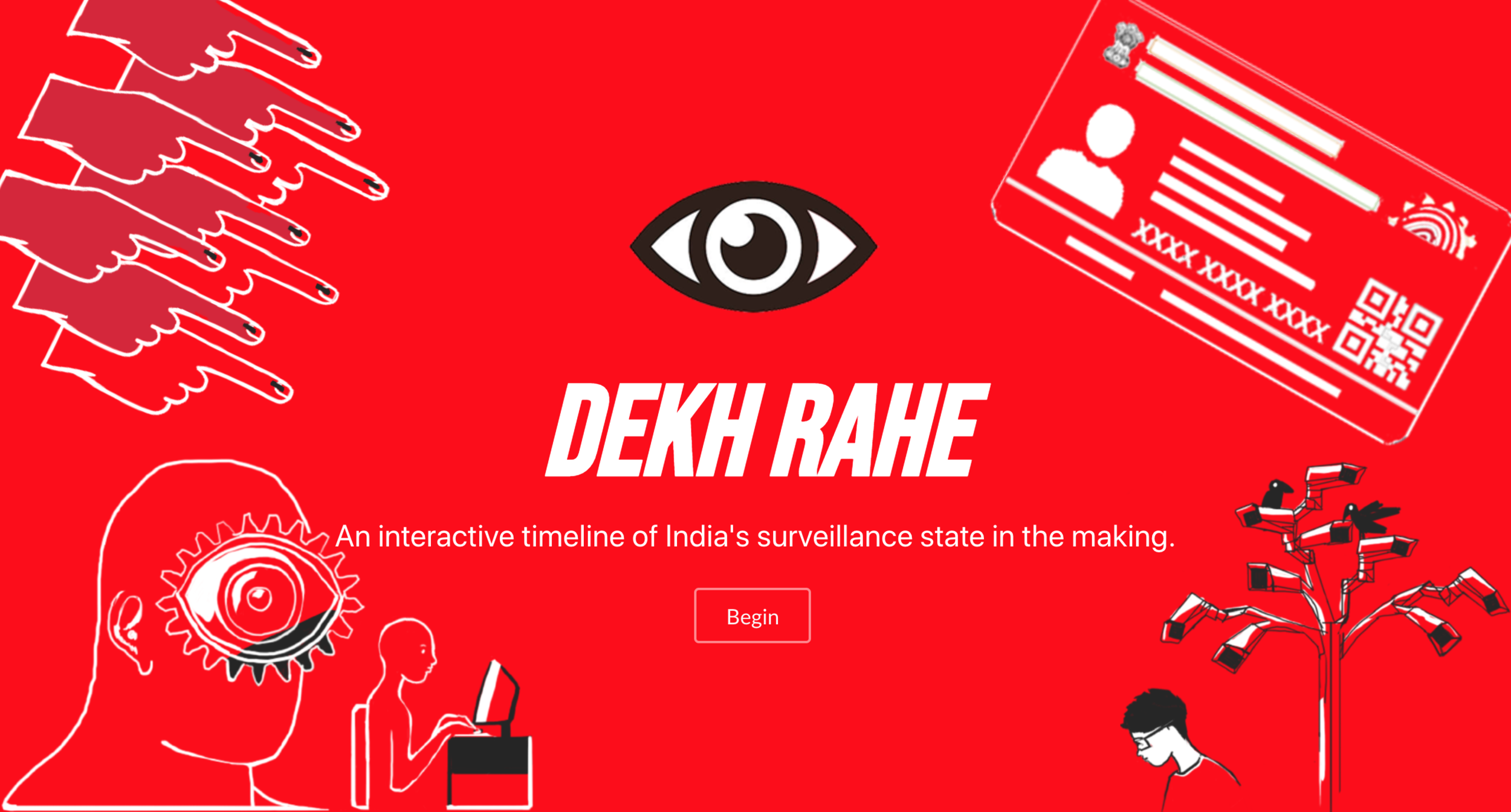
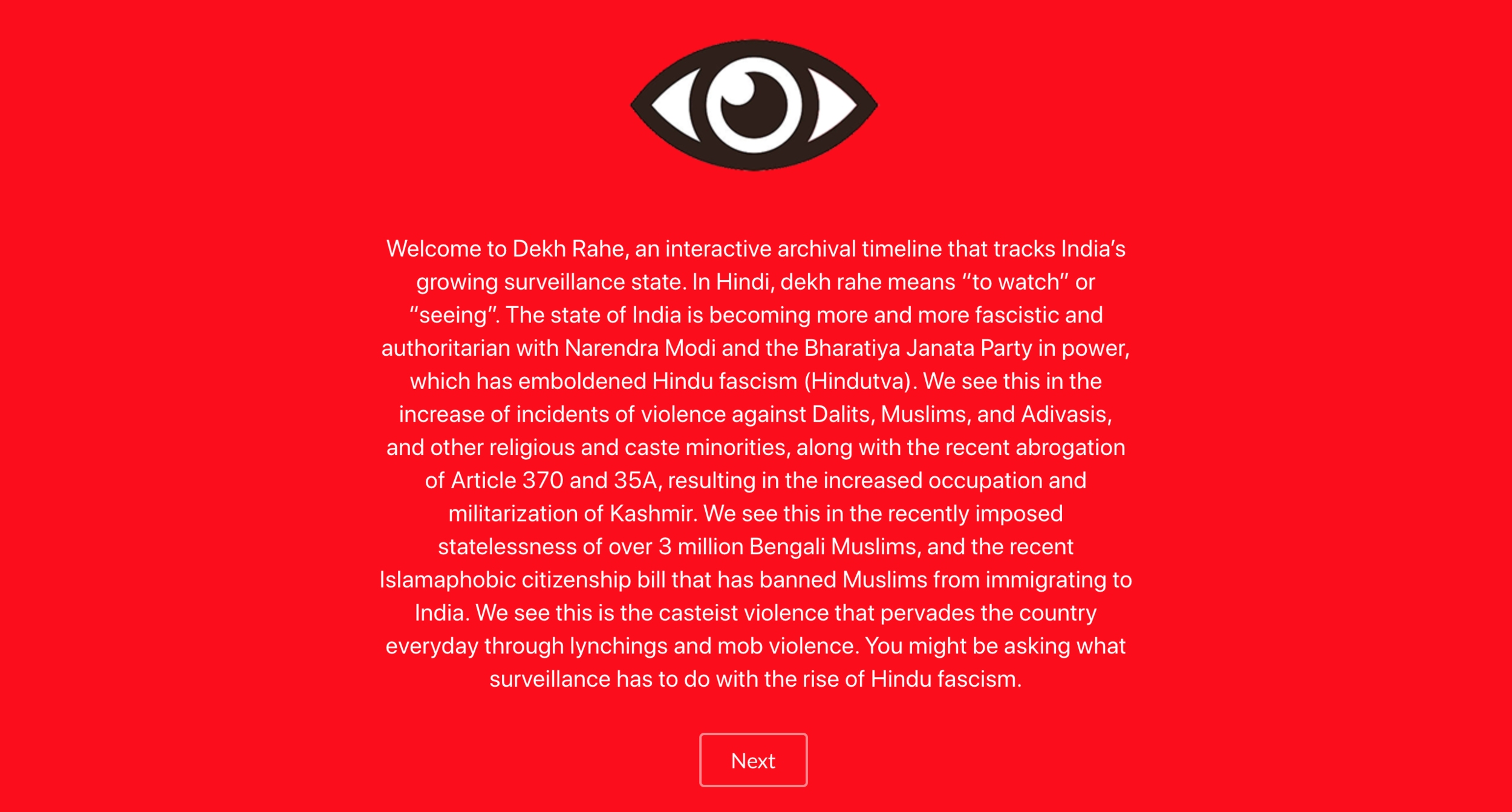
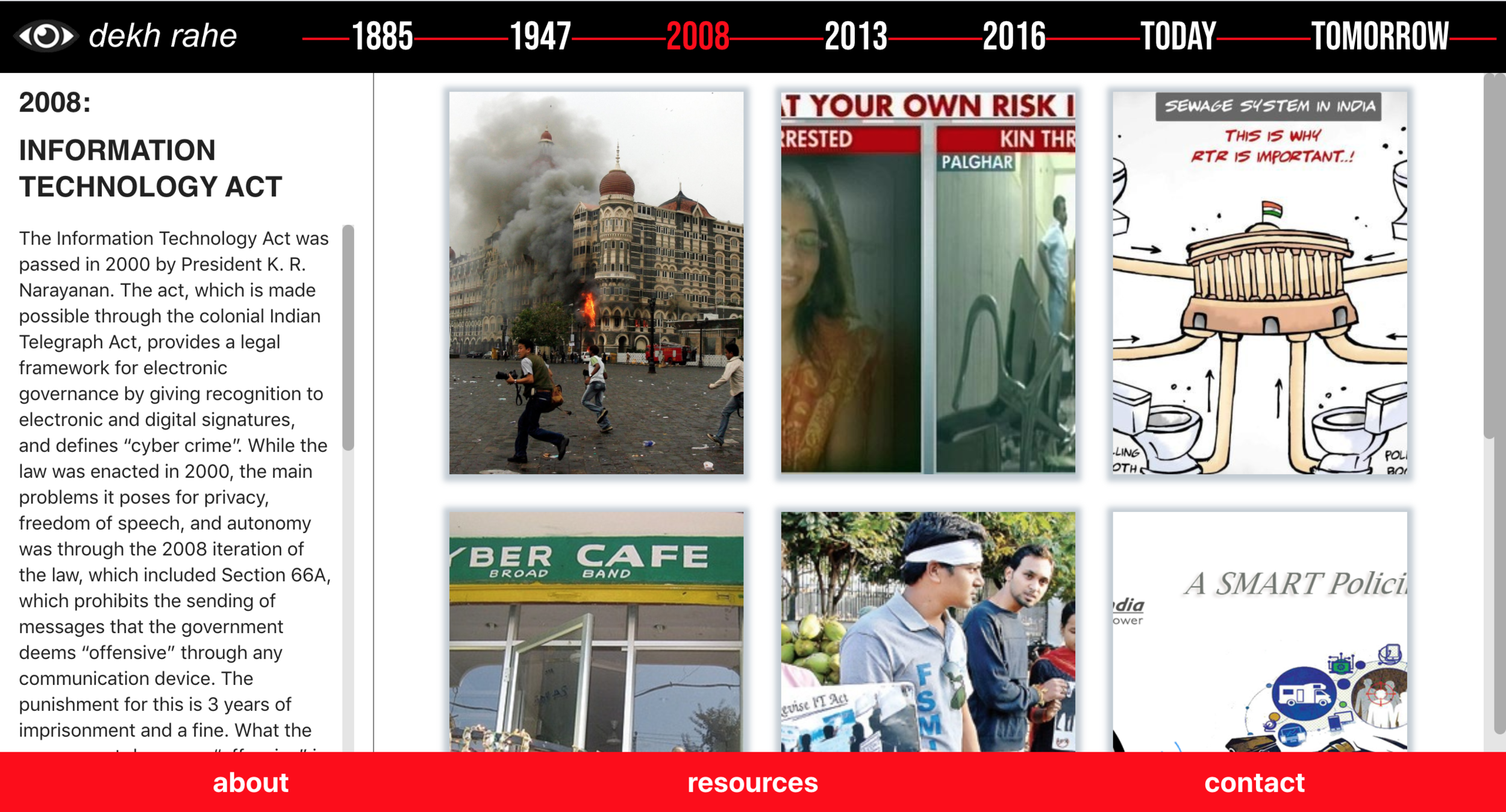
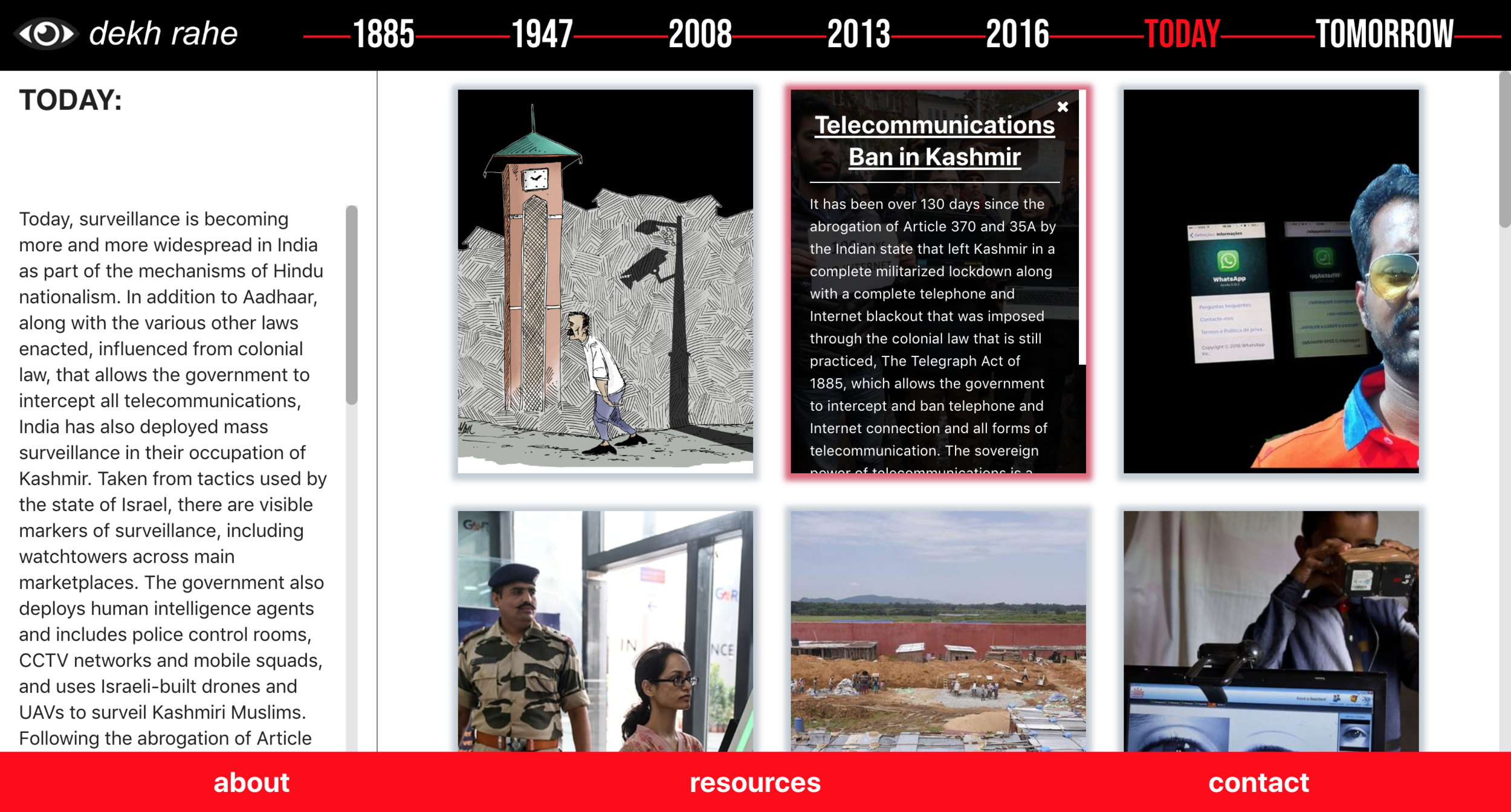
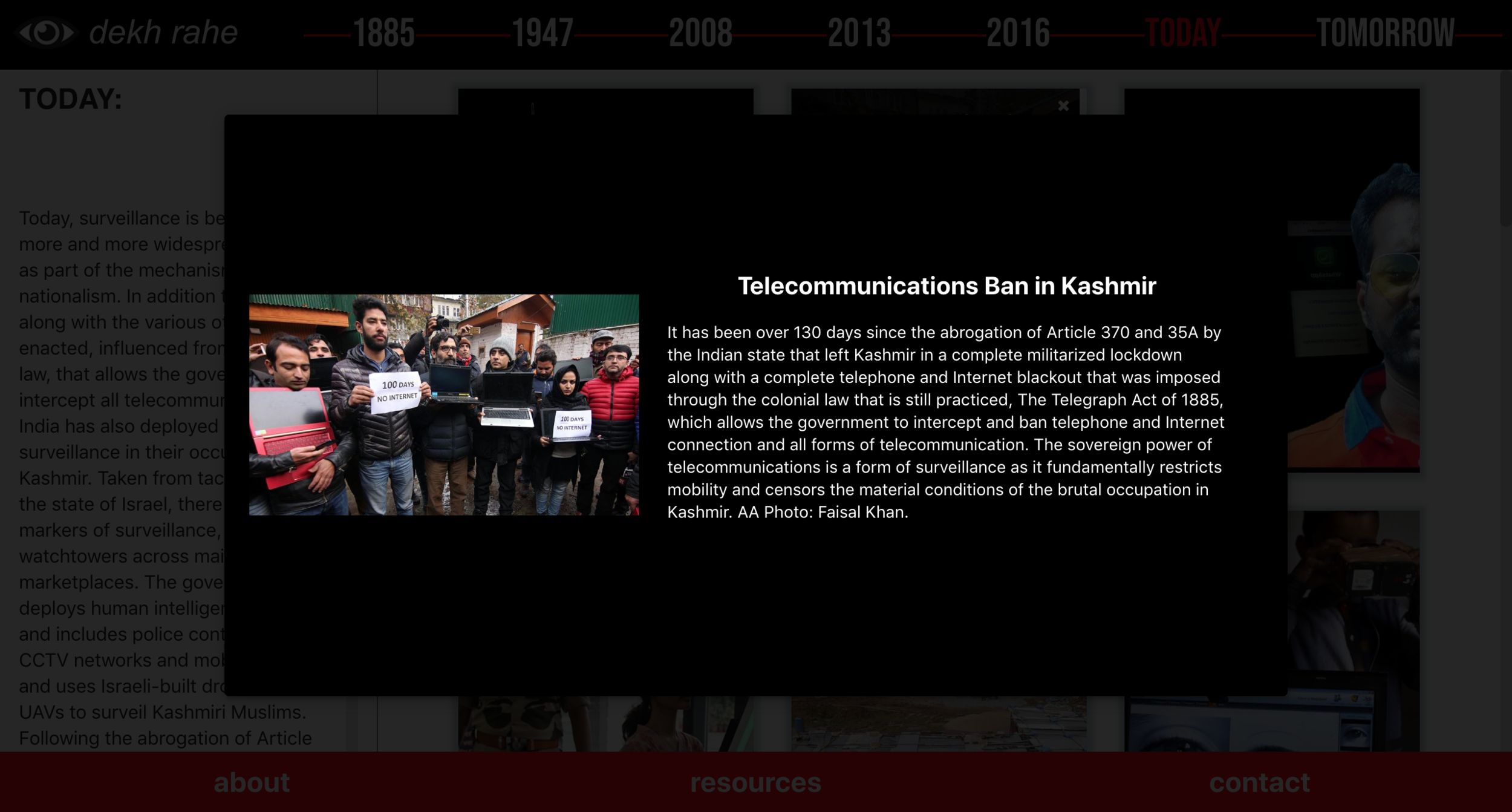
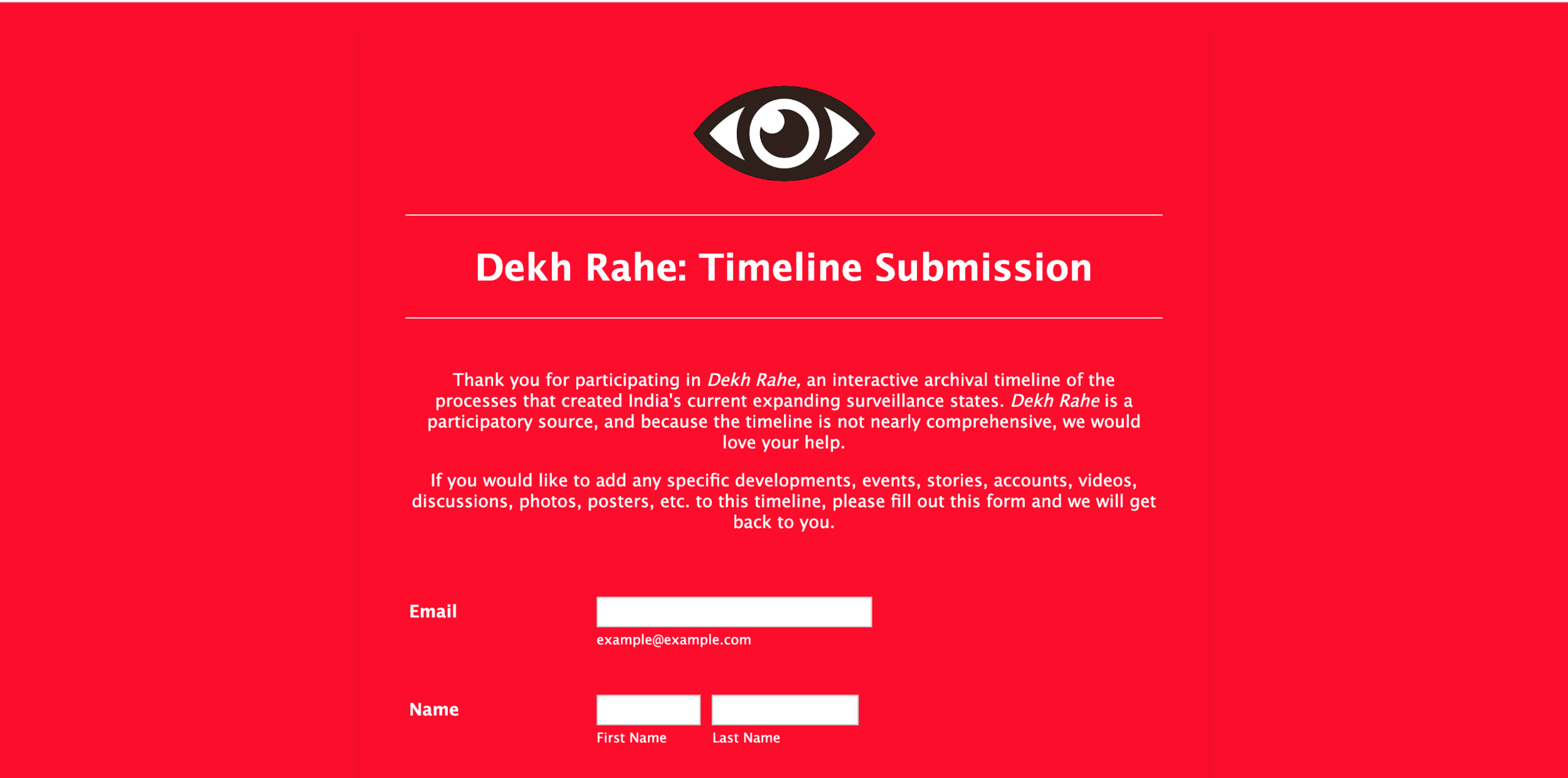
Paper Presentation at Theorizing the Web 2020 (3:32 - 19:05)
My thesis paper, Tracing Biometric Assemblages in India: Tracing Biometric Assemblages in India’s Surveillance State: Reproducing Colonial Logics, Reifying Caste Purity, and Quelling Dissent Through Aadhaar, was accepted into the media conference in New York City, Theorizing the Web 2020, where I gave a talk on the paper. Talk is from minute 3:32 - 19:05.
Poster House NYC: Stick More Bills: An Analysis of Indian Posters in Film, Politics, & Beyond
Poster House is pleased to partner with Shiva Nallaperumal, Priya Prabhakar, and Somnath Bhatt for a wide-ranging panel discussion on regional posters from India. This conversation will explore the graphic elements within Indian posters, drawing from the museum’s permanent collection and the larger history of the genre. Particular attention will be paid to the typographic elements of these designs, as well as the cultural and sociopolitical contexts that inform these images, highlighting the regional and the plural.
Mask On Zone: Anti Surveillance Protest Guide
Mask On Zone was created in collaboration with Nasma Ahmed, Maha Shaista Ahmed, Elly Belle, Neta Bomani, and Ritu Ghiya during the summer of 2020, during the protests for racial justice and abolition. It serves as an anti-surveillance toolkit for the expanding resistance to white inferiority and the carceral state; and to protect them after returning home and when talking about uprisings. As abolitionists, we know that the police and prisons rely on oppressive surveillance regimes to sustain their brutality and harm. These forms of surveillance specifically target Black activists fighting for liberation. We seek to develop a practice of anti-surveillance which finds necessary and creative ways to subvert the surveillance state. As we fight for a new world, we also must make political demands that promote trust, solidarity, mutual aid, and collective forms of living, that render surveillance obsolete. Our purpose is to:
Inform people on what to consider before, during and after protesting.
Build political education around anti-surveillance and digital safety.
Create a hub for anti-surveillance resources and tips in simple plain text that can be easily digested.
Recommended Resolution Viewing: 13 inch (2560 x 1600 px): https://maskon.zone/
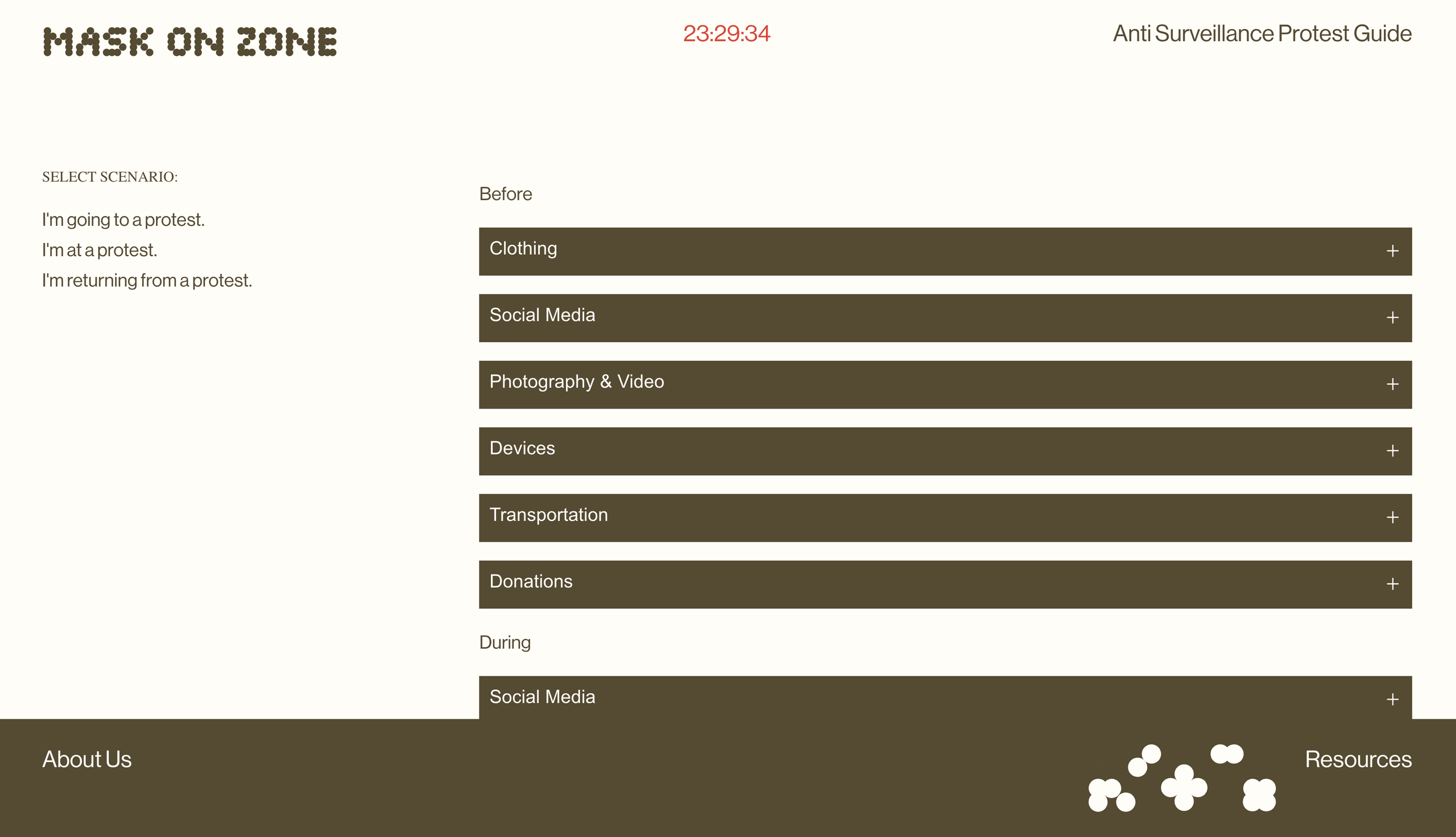
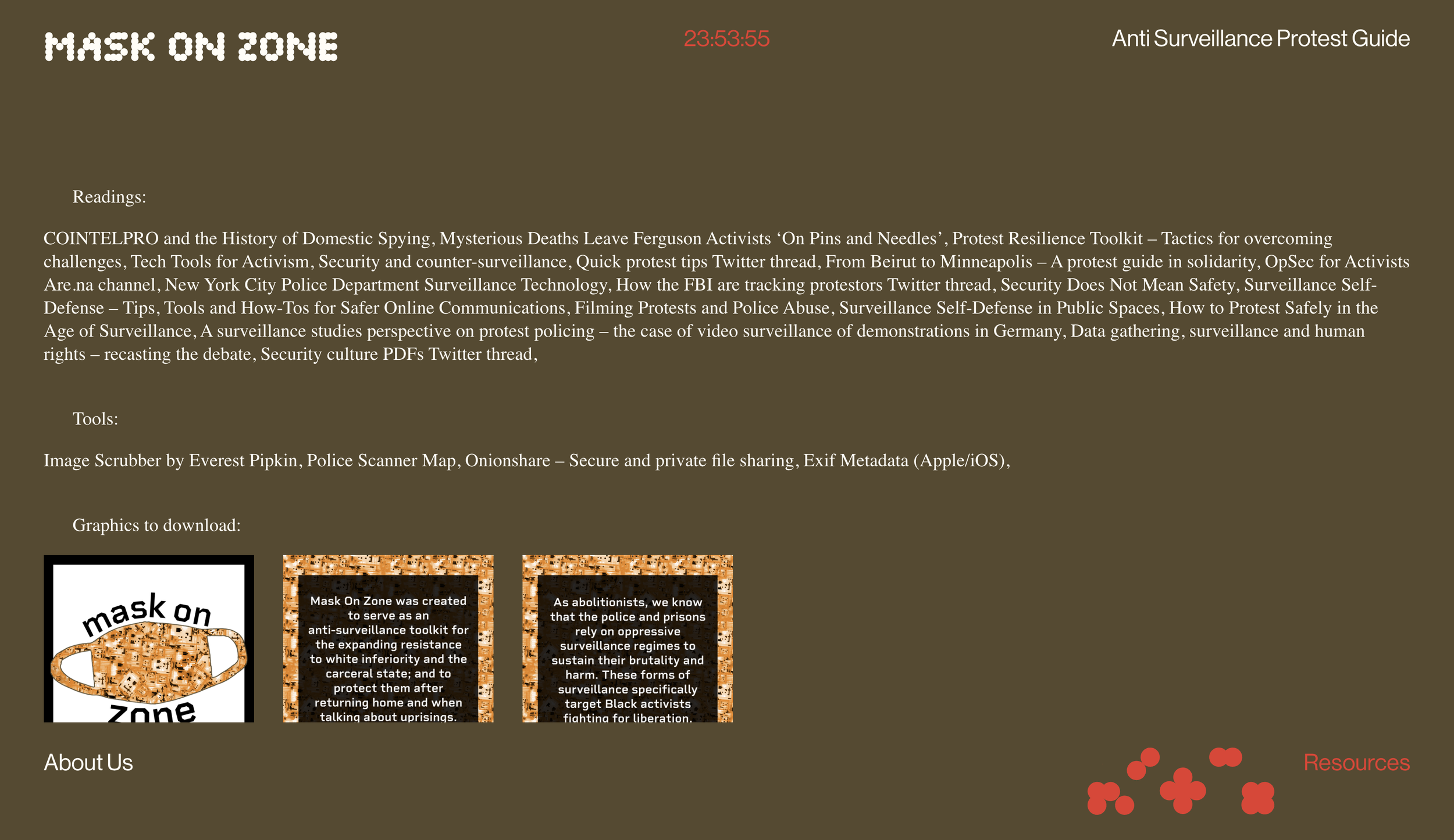
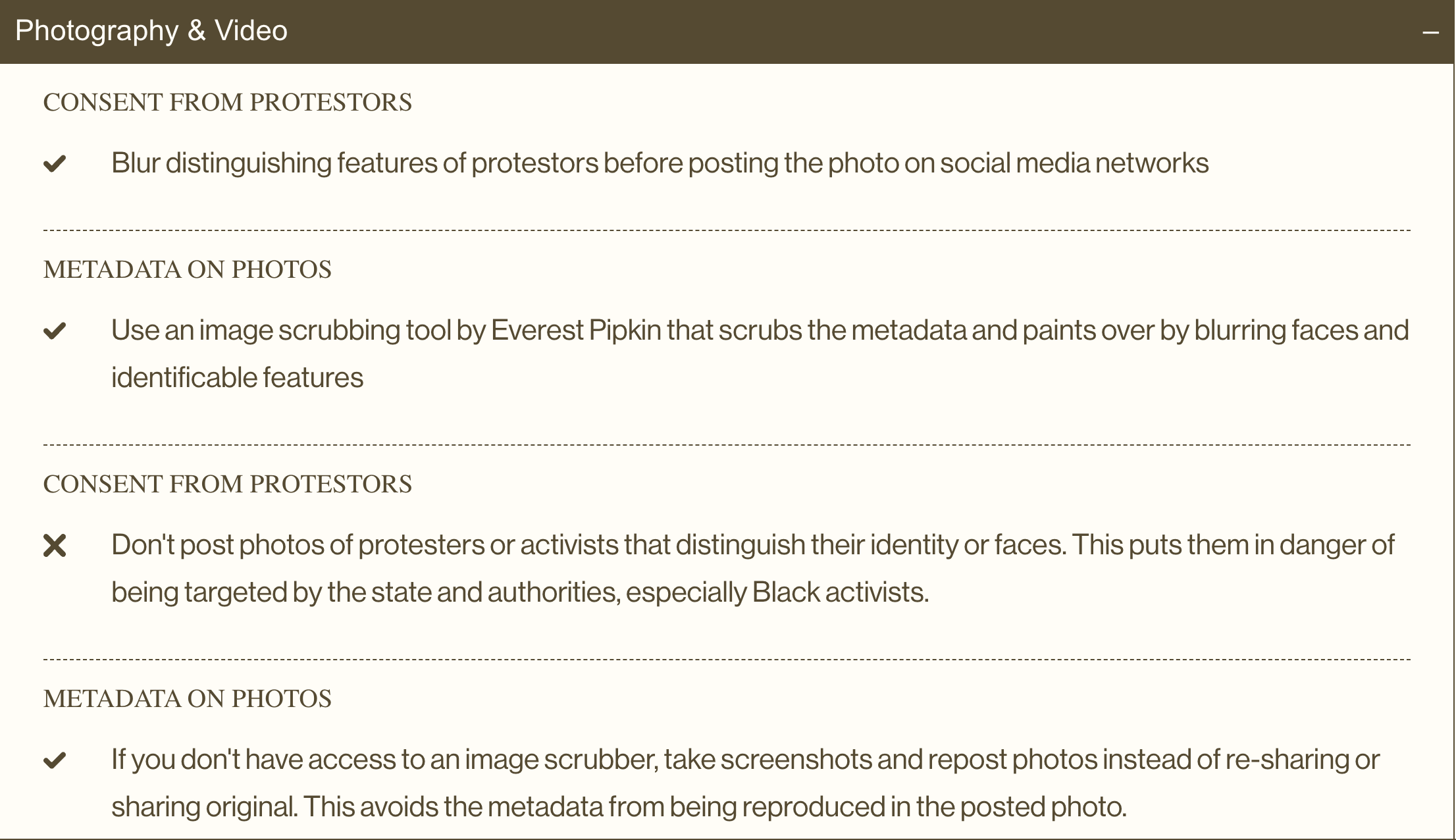

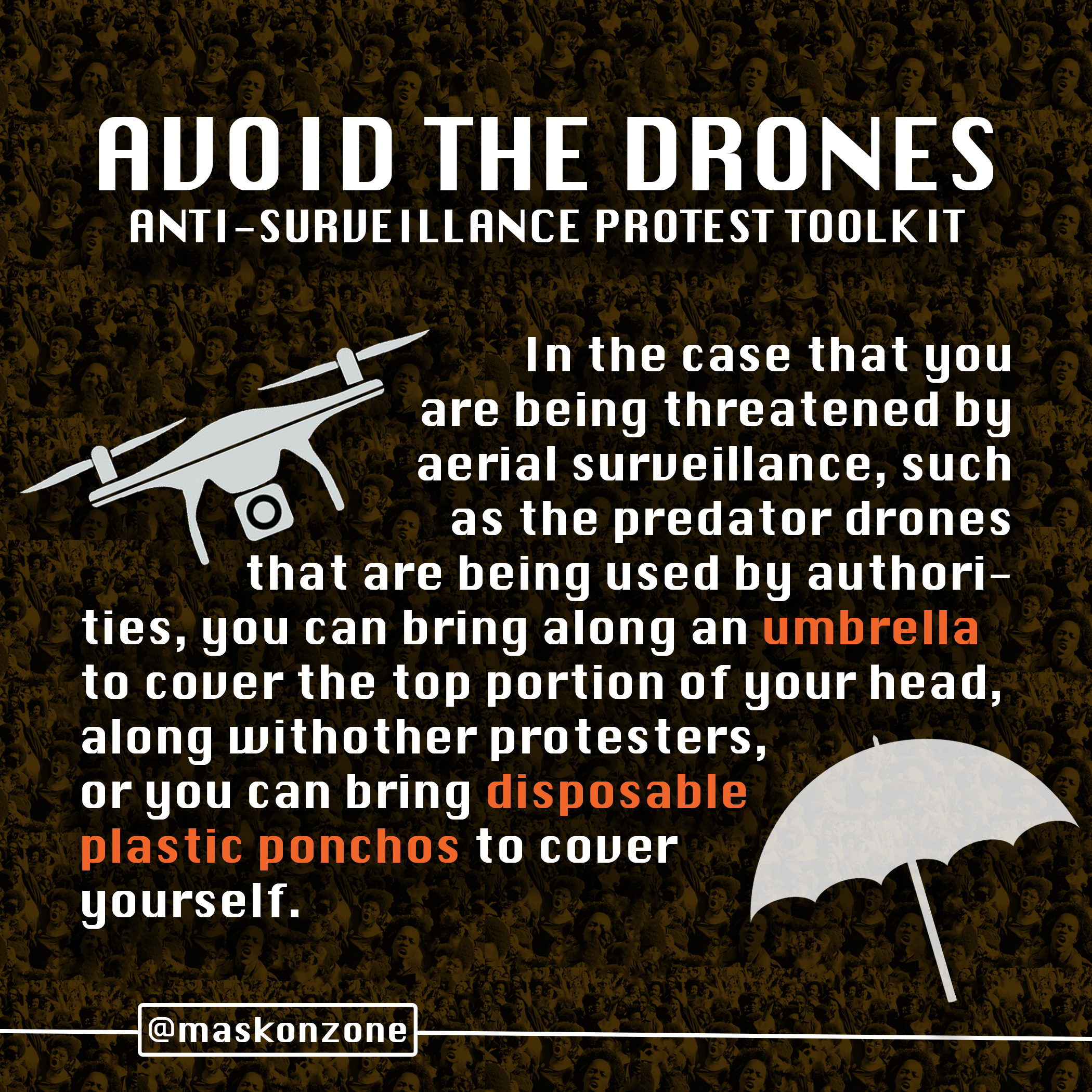
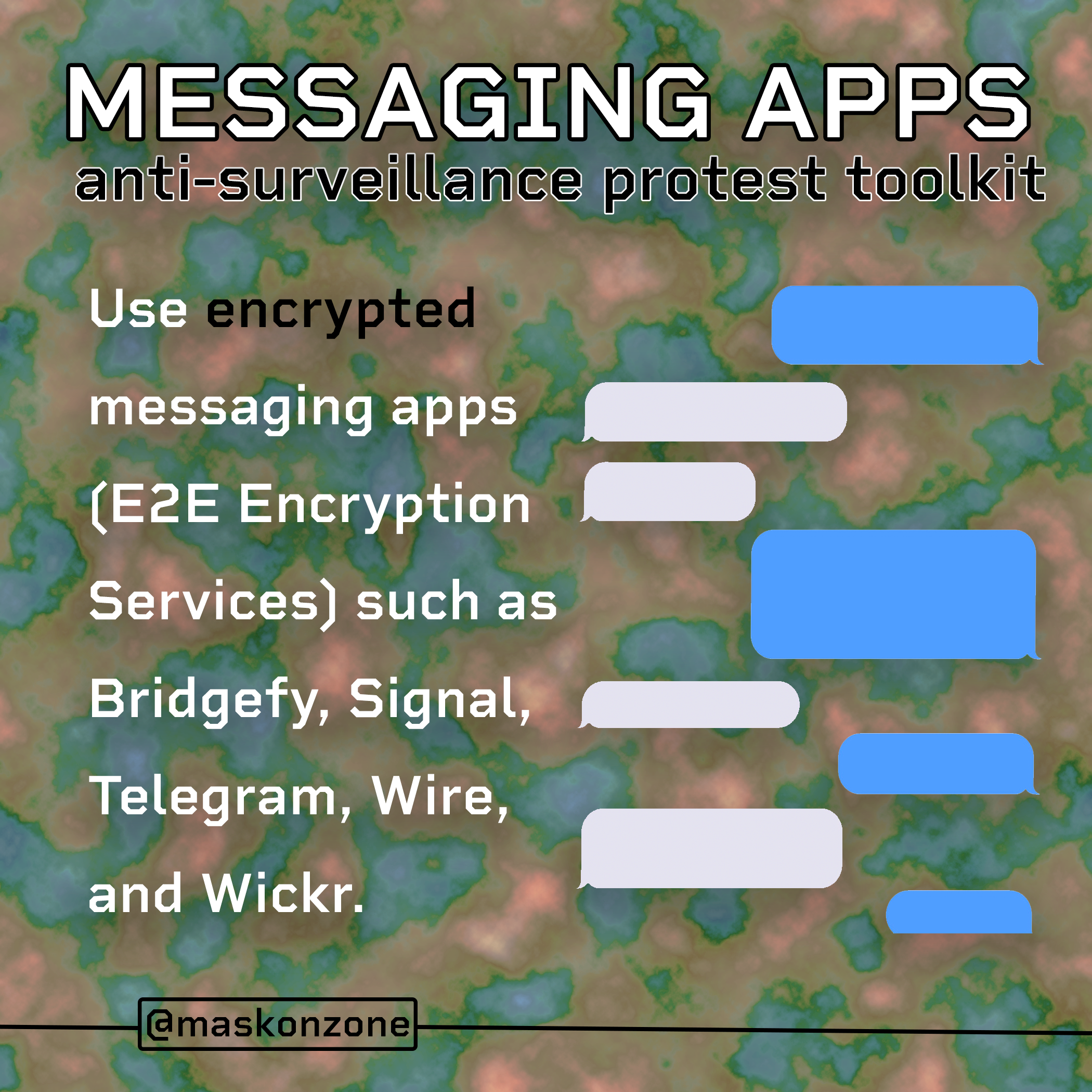


South Asia Art Curation: Leftist Poster Design of South Asia
During April of 2019, I did a curation of leftist poster designs from South Asia on the Instagram account South Asia Art, which is a collective of radical artists and curators of South Asian art. My curations ranged from posters of street theatre in New Delhi on behalf of the cultural wing of the Communist Party and Safdar Hashmi, poster art designs of Indian-Palestinian solidarity, poster art of Kashmiri azadi movements, poster art from the Bangladeshi liberation movement of 1971, and more. Embedded are the posts; to access the captions, click the page.